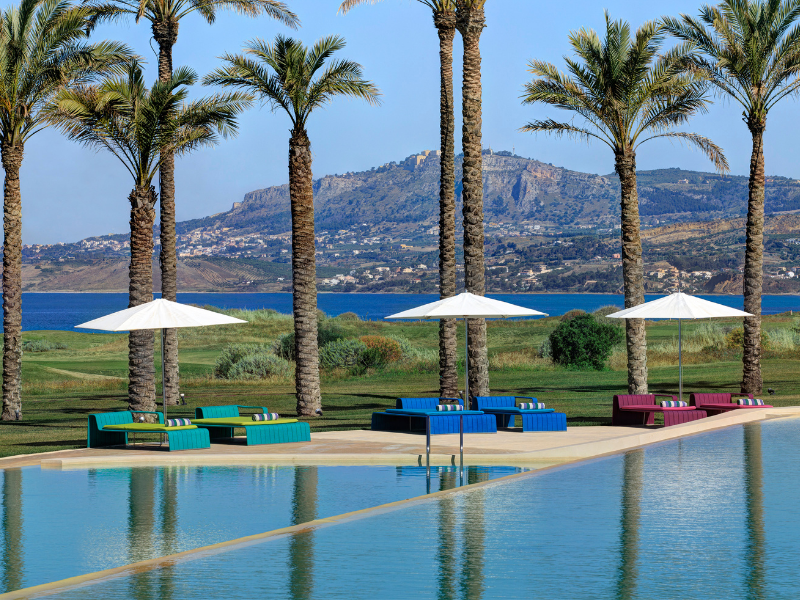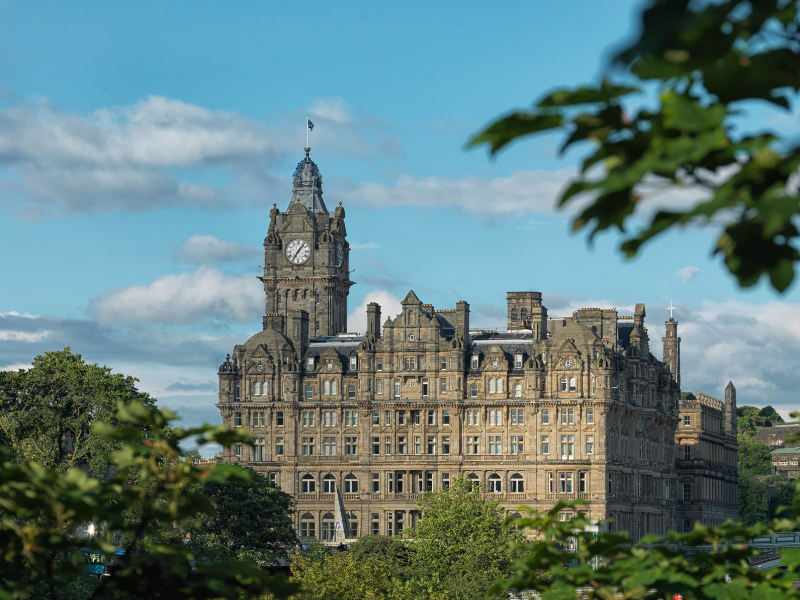
Robert Golding speaks to the famous hotelier about his opposition to lockdown and what graduates need to know about the hotel industry
For many, it will be outdated to think of Covid-19 as being a Biblical reckoning of sorts, where the last shall be first, and the first last, but there have been some tremendous reversals of fortune.
Hoteliers are up there with airline owners and restauranteurs among those who have most had to duck and weave. And there’s no hotelier more famous than Sir Rocco Forte. To talk to him is to suspect that he is the sort of man in whom stress takes the form of indignation, but we should be open-minded about that: Forte has seen his business upended by the pandemic.
Forte is a lockdown sceptic of the Toby Young and Laurence Fox school, but with the crucial difference that with business interests to protect – and employees to look after – he has attracted less opprobrium. That’s partly because he is talking from a position of commercial pragmatism rather than whimsical philosophical pushback. This is the voice of business and it’s a powerful thing to hear.
He begins our interview by recalling the strains of the first lockdown: “Our German hotels stayed open with greatly reduced staffing levels, as we had long-term customers and under law we couldn’t take advantage of their furlough scheme, if we closed. In Russia the hotels remained open as there was no furlough, and therefore there wasn’t much difference in cost between staying open and closed.”

New opening, Villa Igiea
He sighs pre-emptively at the thought of the ensuing recollections: “The reality is most of my hotels depend principally on international business. The Italian city centre hotels [such as the Hotel Savoy in Florence, and the Hotel de Russie in Rome] have six per cent local business; Brown’s of London has nine per cent UK business. With restrictions on international level, they can’t function on a profitable basis.”
But Forte is in the league of the hugely successful and one can sense beneath the extraordinary difficulty of the situation his resilience. He will not take reversal lightly – and 2020 did see a few successes. “Most of these hotels will continue to limp along. The two exceptions in August, September and October were our 40-bedroom hotel Masseria Torre Maizza in Puglia, and the Verdura Resort in Sicily which had a reasonable August. But it’s a gloomy scenario.”
To put it mildly, Forte is no fan of the Johnson administration, but reserves special ire for government scientists. “The government needs to change its attitude to the pandemic,” he continues. “The very few people who are endangered are old and have underlying health problems. It’s not nice to talk about people dying and it’s sad, but it’s not a disease that affects young people. Scientists you’ve never seen before are now enjoying the limelight: they didn’t have authority before, but can now tell people what to do. Really, we should get back as quickly as possible to a position where we’re all allowed to make up our own minds about the risks we want to take.”

The Verdura Resort in Sicily enjoyed a profitable summer in 2020
Forte was talking before the second wave, and the deaths which followed. When I catch up with him again in late April however he questions the government’s narrative about the spike in deaths: ‘I am also upset about the exaggeration of deaths. The reality is that under the age of 60,10,000 people have died, they’re running the economy. 80,000 of the so-called Covid deaths have been in people over 80 and another 30,000 of people between 70 and 80. It’s not a reason to close the economy. The whole thing is to terrify people into submission. I never knew how totalitarian states cowed people into submission. Now I know how they did it.”
Perhaps it will always be salutary to have someone like Forte arguing during a time like this against the status quo since that asks those in power to check whether the balance is right. “We closed our whole economy and it’s just nonsense, we’ve got to move away from being ultra-cautious and ultra-careful.”
In the event of it, the Johnson administration did listen to some extent and in hindsight we all know, after the Winter of Variants, that so far, there has always been cost attached to the decision to open up. Yet we also know that we can’t go on like this indefinitely, and Forte is among the most compelling voices pointing to the cost to business of not opening up.
Forte, like Goldman Sachs CEO David Solomon, wants his staff back in the office. “I started getting people back in the office in July 2020. Staff were anxious to get back to work. Employers have got to get harder with people. People who have underlying health issues – that’s understandable. It’s the same with the schools: children are not at all at risk of the disease.”

Sir Rocco Forte outside Brown’s as part of its Luxury is Local push. Brown’s footfall pre-pandemic was only 9 per cent domestic
The counter-argument would run that this misses the point and that nobody is particularly arguing that they are: what the government is saying is that they can carry the disease and transmit it to someone who is at risk. Forte pushes back on this: “The government said there would be a spike when the children went back to school in March and there wasn’t.”
Forte is illuminating on the commercial reality: “The economy is talked about in the abstract. It’s about people’s livelihoods and their families. We’re still not open and free to work.” This is plainly true, but there again one might say that it’s precisely in recognition of this fact that we have the furlough scheme.
The suspicion remains that confronted with the pressures of SAGE’s advice, and the public health, Forte might have done the same thing as Johnson and Sunak, although perhaps with even greater reluctance. He rejects this: “I keep thinking, ‘What would Mrs. Thatcher have done?’ For one thing, she’d have known the science herself. And she’d’ve have taken a much more pragmatic approach. And why is the government talking about an early election? Because the government is popular and people are at home, being paid and not having to work. We’re not seeing the eventual effect of all this, which will come two years down the road. Their propaganda has made them popular and they don’t want to see adverse effects. There’s a lot of talk internally within the Party about a new election.”
Forte then is a man at bay, and at odds with the government. If you take the long view, you might say that the brand is strong, and that given his own immense savvy, he will find a way back. But there must be days when it doesn’t feel like that. ‘It’s cost the company around £100 million,’ he tells me in April.
It’s no surprise to hear his opposition to home-working going forwards. Recalling the first lockdown he says: “For the first six weeks, I’ve never worked harder in my life, but after a while the whole thing pales. Being in an office creates discipline. And if not being in an office is demotivating for me, what’s it doing to the rest of my staff?”
And what about the position on tax going forwards? Forte is clear about mooted tax rises: ”We want to get the economy moving, and we’re not going to do that by raising taxes. Servicing the debt will cost half a billion a year which is not significant. Why do we need to start repaying the debt now? We finished off paying our war debt three years ago. We don’t need to rush.”

The Balmoral in Edinburgh is another option for the domestic traveller
As a Conservative Party donor, has he spoken to the prime minister about all this? “I’m afraid I’m not in a position to pick up the phone to him to tell him what I think. The best way to influence those in government is to make your views known very publicly. I have appeared on television which is not something I normally do – desperation.”
So will he be looking to hire this year? “Once things normalise, a lot of businesses won’t be around anymore. Ones like mine who can borrow more money will be more indebted with the constraints that puts on business. But we’ll still be looking to hire people.”
So what does he look for in potential employees? “We look for an element of enthusiasm for the industry. I would never advise anyone to come into this industry who didn’t enjoy working in it: you should try and do a holiday job for a few months, and see if you like the feel of working in a hotel and what it entails.” What should they be prepared for? “It’s quite hard work,’ he says. “It involves unsociable hours a lot of the time and people in the business enjoy that. You need to have camaraderie and a sense of belonging. Upwards mobility can be very quick. You can start as a waiter and end up in a management position if you have the right attitude and the abilities to do so and these are recognised. If you’re a shrinking violet it’s not the place for you.”
So, once the pandemic’s over with, what are his plans? “Well, I have big concentration in Italy as we already have a strong position. But I’m not in Milan. Venice is somewhere we should be. I want to do more in the UK. It’s very difficult outside of London to look at smaller hotels in important tourist destinations where a larger hotel won’t work. Where a fifty or sixty bedroom hotel would be quite successful. As a UK-based company it’s a shame we’re not doing more here.”
You get the impression that this is how he’s used to thinking – dynamically and rapidly about future plans. It’s a window into the mindset the pandemic has deprived him of. “Then I’m not in Paris, not in Madrid and Barcelona. I’m in St. Petersburg not Moscow. Then I’d like to be in the States – a big proportion of our business comes from there, so New York and Miami…”
At which his voice trails off, seemingly with the realisation that none of this is possible at the moment. But everything about the man makes you realise it will be again – and perhaps sooner than any of us realises.